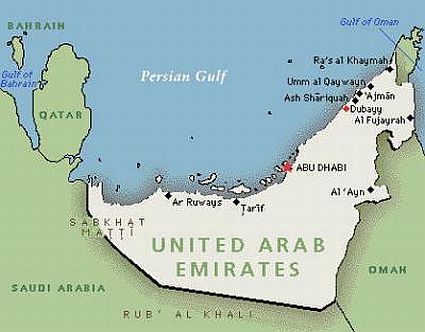FEATURE: Abu Dhabi counts cultural blessings at music, arts festival
 Abu Dhabi/Istanbul - For decades, Damascus, Beirut, Baghdad and Cairo were the Arab world's cultural centres. The Arab Gulf states, with their bubbling oil wells, man-made islands and glassy shopping malls, were considered a cultural desert.
Abu Dhabi/Istanbul - For decades, Damascus, Beirut, Baghdad and Cairo were the Arab world's cultural centres. The Arab Gulf states, with their bubbling oil wells, man-made islands and glassy shopping malls, were considered a cultural desert.
But that is changing in a hurry now. Already world-class in high- rise buildings and artificial isles, Gulf Arabs want to join the international music and art elite as fast as possible, too.
Much is happening at the moment in Abu Dhabi in particular, the wealthiest of the United Arab Emirates (UAE).
Last year, its luxurious waterfront Emirates Palace Hotel hosted a Picasso exhibition, part of a strategy meant to prepare the populace for the opening of branches of the Louvre and Guggenheim Museum on Saadiyat Island, off Abu Dhabi's coast.
And from March 21 until Thursday, the Emirates Palace Hotel presented a star-studded lineup at the 6th Abu Dhabi Music and Arts Festival.
Romanian soprano Angela Gheorghiu and German tenor Jonas Kaufmann thrilled the audience at the opera gala opening concert with arias from "Nabucco," "La Traviata" and "Madame Butterfly," earning several encores. The hotel concert hall's acoustics, which are less than optimal, detracted only minimally from the general enthusiasm.
In windy weather six days later, Italian tenor Andrea Bocelli performed with the Bolshoi Theatre Orchestra in the hotel's park.
This week, too, top Western classical music stars took to the hotel's stage, including Irish-born flutist Sir James Galway, French pianist Jean-Yves Thibaudet and Russian cellist Nina Kotova.
"The most beautiful thing is when I see people from almost 100 nations sitting in the audience," said Hoda Ibrahim Al Khamis-Kanoo, founder of the Abu Dhabi Music & Arts Foundation. The daughter of a Saudi businessman and Syrian mother, she launched the festival in 2004 with the help of sponsors.
Tapping tax revenues for the festival was out of the question, since Abu Dhabi residents pay no taxes. Later, the government began providing financial assistance.
"We want to preserve the heart of this country's cultural heritage but keep the doors to the world open at the same time," remarked Kanoo, who last year was awarded the Federal Cross of Merit, Germany's highest honour, for her contributions to Arab-German cultural exchanges.
Cosmopolitan and fluent in English and French, she in no way fits the cliched image of a Muslim woman oppressed by men, leading a joyless life behind a chador. Sometimes she will put on a fashionable, sheer lace veil, though.
Kanoo is enthusiastic about what she calls the "cultural renaissance" in the Arab Gulf states.
The theme of this year's Abu Dhabi festival was "Land of Blessings" ("Bilad al Khair), the name usually given to the UAE. And it does indeed seem as though most people in the high-rise metropolises on the Gulf, blessed with riches from oil and natural gas, have recognized the value of culture and education after decades of conspicuous consumption and decadence.
"The whole curriculum is being reviewed. This is an important seed that will soon sprout," asserted Kanoo, whose husband, Mohammed, is a businessman and well-known painter.
Kanoo - she loves music but plays no instrument herself - said she hoped that the concert hall planned for Saadiyat Island would be finished as quickly as possible so that Abu Dhabi finally had a music venue with proper acoustics.
A large concert hall is also being built in the Gulf emirate of Qatar, where the Qatar Philharmonic Orchestra currently rehearses and performs in makeshift quarters.
The only exception on the Gulf in matters of culture, education and music is Saudi Arabia. Although the kingdom is building a new elite university with its petrodollars, its powerful Islamic clergy see art and music as harbingers of sin.
On the day that Karim Said, a young female Palestinian pianist discovered by conductor Daniel Barenboim, performed at the Abu Dhabi festival's closing concert, the Arab newspaper Al-Sharq Al-Awsat reported that the Ministry for Social Affairs in Riyadh had decreed dancing, music and fashion shows to be prohibited during celebrations by Saudi women's associations, which are off limits to men in the first place.
Under the decree, "other activities that contradict our customs and traditions" were banned as well. (dpa)